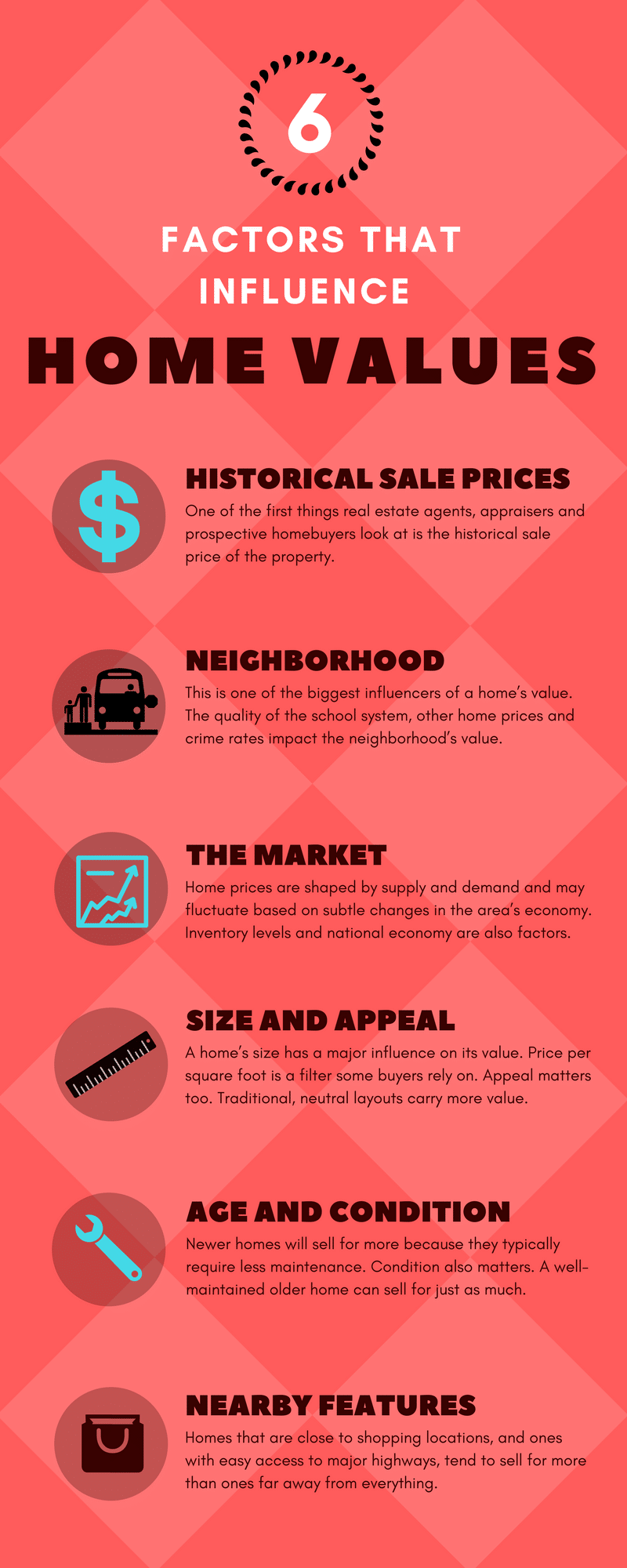
If you’re buying or selling a home, one of the things you think about is how much a property is really worth. Buyers want to get a home they love within their budget while sellers would like to get top-dollar on their home sale. Both certainly don’t want to get ripped off. To determine an accurate value of a property, here are some key indicators experts usually look into:
6 Factors That Help Determine Property Value
Historical Sale Prices
This is one of the first things realtors®, appraisers and potential homebuyers check. Say if the property has been sold thrice in the past three years, for $120,000, $125,000 and $123,000 respectively, it’s reasonable to start at a valuation around $120,000 and make adjustments based on any new additions or changes to the property.
Neighborhood
In real estate, we use the term “external obsolescence”, meaning a depreciation in the value of a home due to factors that exist outside the property itself. And the neighborhood is one. For instance, if your home is right next to an empty plot, chances are it may be used as a dumping site by the neighbors. Another thing to consider is the crime rate in the area. If with kids, the quality of nearby schools is important and impacts the price of homes.
The Market
Home values tend to rise over time, but recessions and other disasters can lead to lower prices so one must look into the current state of the housing market to see what a home’s worth really is at the time. Real estate, like other economic assets, follows the rule of supply and demand. If it’s a sellers’ market, that means there is a huge demand for homes but less supply of properties in the market– which then drives home prices higher. A buyer’s market is when there are fewer buyers but have a surplus of inventory of homes – driving home prices lower. Ask a real estate agent to stay informed about the current market.
Size and Appeal
We’re not only talking about the price per square foot, but homebuyers are also looking at livable space and layout. When shopping for homes, buyers already filter the homes by the number of bedrooms and bathrooms, which also influence your home’s value. Traditional and neutral layouts appeal to larger audiences. Unique features like a pool or patio can have more value that those without.
Age and Condition
Age matters when determining a home value. Know that just because a property is old, doesn’t automatically mean it’s worth less than a new build. A well-kept aging house can actually be worth the same as a newly-constructed home. Keep a keen eye on some signs of a money pit property by checking the condition of the foundation, structural integrity, plumbing, electrical work, fixtures, and more.
Nearby Features
Location is vital in real estate, especially in relation to accommodations and features nearby. Generally, homes sell for more when is a sought-after destination and has easy access to major highways, business centers, and places they go to regularly such as work, school, churches, market, park, etc.
Factoring in all the above-mentioned, you’ll get a good grasp of a home’s value. It’s worth hiring a real estate agent to provide professional advice on pricing and valuation. If you’re ready to take the next step and buy or sell a home in North San Diego County, contact us and we’ll find you the perfect home.





